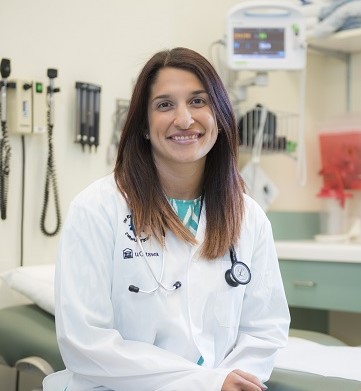 “CAR-T therapy is a game-changer for people with certain kinds of blood cancer, but we need more research to make it even better, We are delighted to work with partners across Canada to build Canadian expertise, capacity for innovation and clinical trials in this field.” said Dr. Natasha KekreResearchers at The Ottawa Hospital and the University of Ottawa are partnering with colleagues across the country to expand Canada’s capacity to develop new cell-based immunotherapies for cancer with a $5.2 million grant from the Canada Foundation for Innovation. The funding is part of a $518 million investment in research infrastructure across the country, announced on March 3, 2021 by Prime Minister Justin Trudeau and the Honourable François-Philippe Champagne, Minister of Innovation, Science and Industry.
“CAR-T therapy is a game-changer for people with certain kinds of blood cancer, but we need more research to make it even better, We are delighted to work with partners across Canada to build Canadian expertise, capacity for innovation and clinical trials in this field.” said Dr. Natasha KekreResearchers at The Ottawa Hospital and the University of Ottawa are partnering with colleagues across the country to expand Canada’s capacity to develop new cell-based immunotherapies for cancer with a $5.2 million grant from the Canada Foundation for Innovation. The funding is part of a $518 million investment in research infrastructure across the country, announced on March 3, 2021 by Prime Minister Justin Trudeau and the Honourable François-Philippe Champagne, Minister of Innovation, Science and Industry.
Cell-based immunotherapies such as CAR-T cell therapy have shown great promise in treating certain kinds of blood cancer and may have potential in treating other cancers as well. CAR-T therapy involves extracting immune cells called T cells from a patient, genetically engineered them to enhance their cancer-killing ability, and then giving them back to the same patient.
The newly-funded project, called ExCELLirate, will provide infrastructure to expand Canada’s capacity to develop and manufacture new kinds of cell-based immunotherapy and test them in patients. It builds on the first clinical trial of made-in-Canada CAR-T cells (called CLIC-01) which launched at The Ottawa Hospital and BC Cancer in 2019. The CLIC platform, funded by BioCanRx and other partners, is supporting CAR-T cell manufacturing in Victoria, Ottawa, Winnipeg, Manitoba and Toronto, while the ExCELLirate platform will support infrastructure in Kingston, Hamilton, Calgary and Montreal as well as Ottawa.
“CAR-T therapy is a game-changer for people with certain kinds of blood cancer, but we need more research to make it even better,” said Dr. Natasha Kekre, Principal Investigator of the CLIC-01 trial, hematologist and associate scientist at The Ottawa Hospital and assistant professor at the University of Ottawa. “We are delighted to work with partners across Canada to build Canadian expertise, capacity for innovation and clinical trials in this field. We hope our work will lead to even better cell-based immunotherapies that work for more kinds of cancer, as well as innovative approaches for providing these therapies in the Canadian system.”
Researchers and institutions collaborating in ExCELLirate include Drs. Rebecca Auer (The Ottawa Hospital, University of Ottawa), Annette Hay (Canadian Cancer Trials Group, Queen’s University), Jonathan Bramson (McMaster University), Douglas Mahoney (University of Calgary), Denis Claude Roy (University of Montreal) and Heidi Elmoazzen (Canadian Blood Services). Additional partner organizations include BioCanRx, CellCAN, the Centre for Commercialization of Regenerative Medicine, the Centre for Commercialization of Cancer Therapy, the National Research Council, Cell Therapy and Transplant Canada, the Ontario Institute for Cancer Research, the universities of Alberta, British Columbia, Manitoba, McGill and Toronto.
Core resources supporting CAR-T research at The Ottawa Hospital and the University of Ottawa include the Biotherapeutics Manufacturing Centre, the Ottawa Methods Centre and the Blueprint Translational Research Group.
The Ottawa Hospital is a leading academic health, research and learning hospital proudly affiliated with the University of Ottawa and supported by The Ottawa Hospital Foundation.
Media Contact
Amelia Buchanan
Senior Communication Specialist
Ottawa Hospital Research Institute
613-297-8315
ambuchanan@ohri.ca
